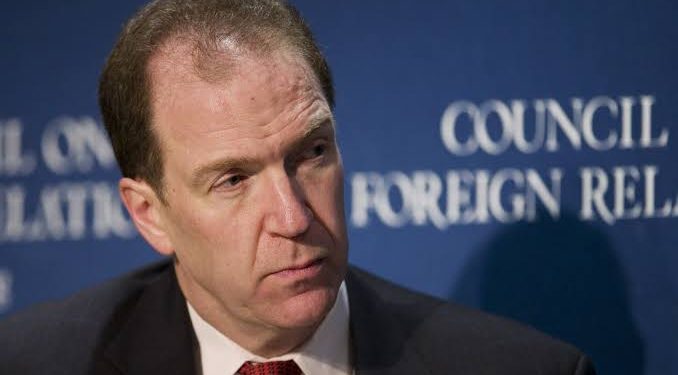By John Ikani
The World Bank has projected a 2.5 per cent economic growth for Nigeria in 2022.
The projection was contained in the bank’s Global Economic Prospects report this week.
The 2022 forecast is a slight upward review from the estimated 2.4 per cent growth in 2021.
According to the bank, higher oil prices and activities in the service sectors, such as telecommunications and financial services, will drive this slightly upward growth.
The Washington based institution also said Nigeria’s growth is projected to strengthen somewhat to 2.8 per cent in 2023.
It went on to note that global growth is expected to decelerate from 5.5% in 2021 to 4.1% in 2022 and 3.2% in 2023 as pent-up demand dissipates and as fiscal and monetary support is unwound across the world.
What the World Bank is saying
World Bank Group President David Malpass said “The world economy is simultaneously facing COVID-19, inflation, and policy uncertainty, with government spending and monetary policies in uncharted territory. Rising inequality and security challenges are particularly harmful for developing countries.”
He added that “Putting more countries on a favourable growth path requires concerted international action and a comprehensive set of national policy responses.”
The Bank warned that the slowdown will coincide with a widening divergence in growth rates between advanced economies and emerging and developing economies.
“Growth in advanced economies is expected to decline from 5 percent in 2021 to 3.8 percent in 2022 and 2.3 percent in 2023—a pace that, while moderating, will be sufficient to restore output and investment to their pre-pandemic trend in these economies.
“In emerging and developing economies, however, growth is expected to drop from 6.3 percent in 2021 to 4.6 percent in 2022 and 4.4 percent in 2023,” it said.
For Africa
World Bank stated that growth in the three largest sub-Saharan Africa economies—Angola, Nigeria, and South Africa—was an estimated 3.1 percent in 2021, citing that it was an upward revision from previous estimates.
“Growth in Nigeria is expected to reach 2.5 percent in 2022 and 2.8 percent in 2023, while Angola’s economy is projected to grow by 3 percent on average in 2022-23. Growth in South Africa is forecast to moderate to its pre-pandemic trend, being held back by structural impediments and elevated levels of public debt.
“In Angola and Nigeria, growth was driven by the recovery in non-oil sectors; oil production across the region remained below pre-pandemic levels because of disruptions in maintenance work and declining investment in extractive industries.
“In South Africa, a strong rebound earlier in the year was disrupted by severe COVID-19 outbreaks, social unrest, and power shortages,” it said.
The Banks’ outlook projections for sub-Saharan Africa is projected to be 3.6 percent in 2022 and 3.8 percent in 2023. It added that it is nearly a full percentage point below the 2000-19 average, citing continued effects of the pandemic, reduced policy support, and policy uncertainty and worsening security situation in some countries.
“The pandemic has set back progress on poverty reduction and key development goals across the region, reversing more than a decade of gains in per capita income in some countries. In over a third of the region’s economies, including Angola, Nigeria, and South Africa, per capita incomes are projected to remain lower in 2022 than a decade ago,” the Bank stated.



































